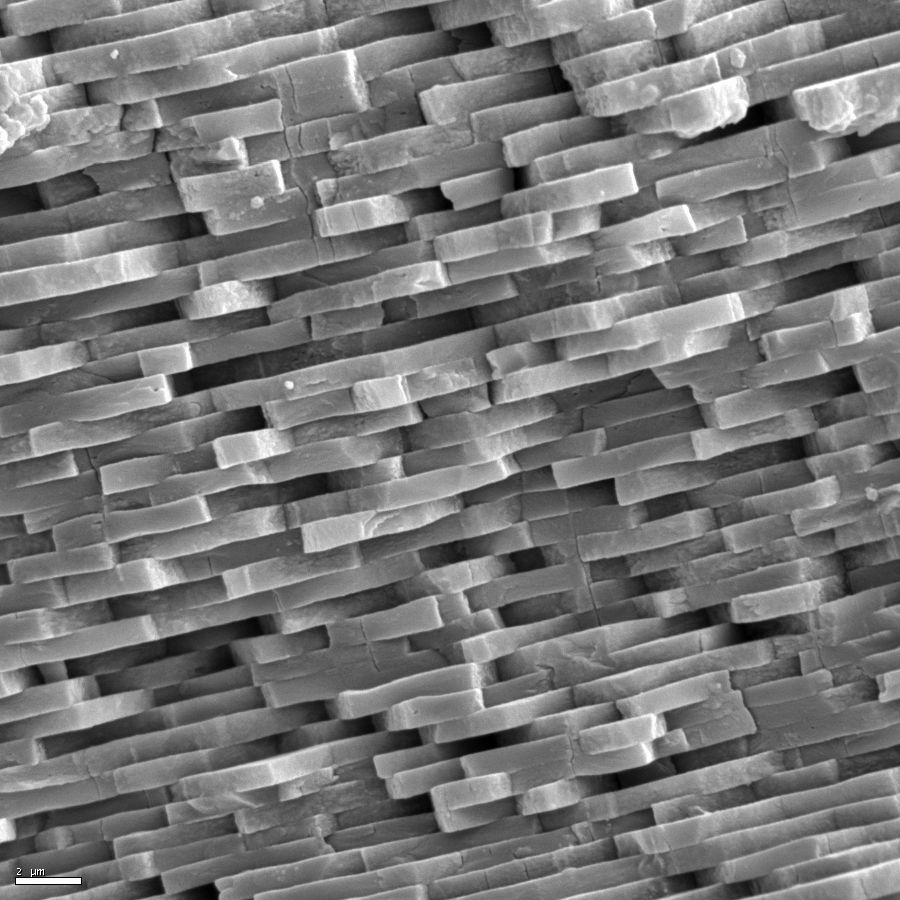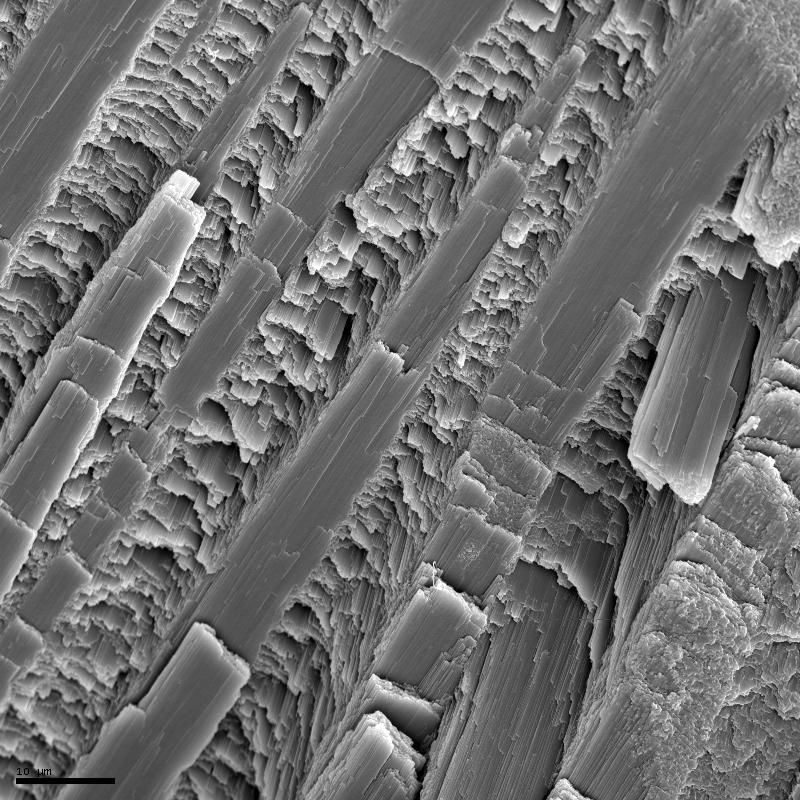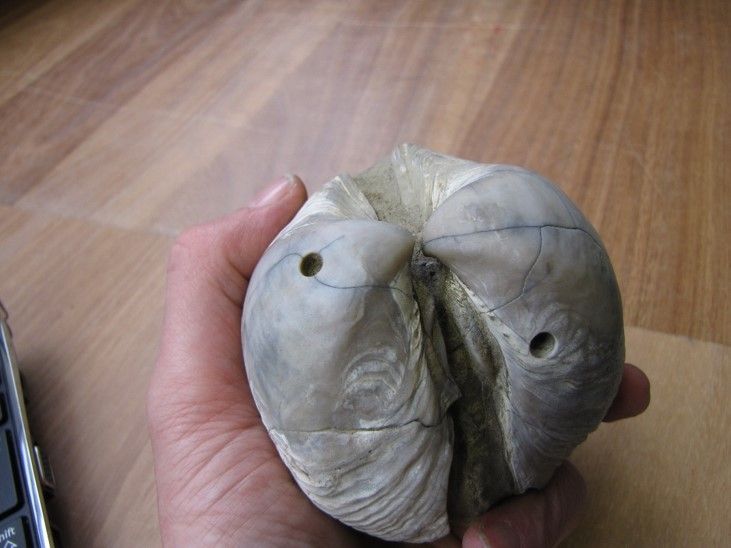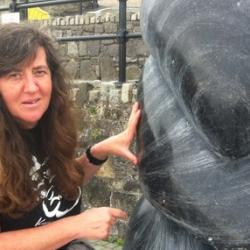Palaeobiology
Research
Google Scholar Author Profile:
http://scholar.google.co.uk/citations?user=SHMlDzoAAAAJ&hl=en
Research Interests
Research: Evolutionary Biology
I use a range of zoological and palaeontological techniques to unravel the intrinsic and extrinsic controls that have shaped evolution. My main targets are bivalves and brachiopods as these have been important components of marine faunas throughout the Phanerozoic.
My main research areas include:

Scanning electron micrograph of the nacre of Mytilus edulis
- Molluscan microstructure and mineralogy has diversified over the course of the Phanerozoic. Together with Professor Antonio Checa (University of Granada) I work towards a better understanding of these structures, using a variety of microscopic and x-ray analyses, to characterize the microstructures from a crystallographic standpoint and to achieve a greater understanding of their genesis and functional significance.

Scanning electron micrograph of the crossed-lamellar structure of Ctenoides scabra
- Microstructural traits are also key characters in phylogenetic reconstruction. Together with Professor John Taylor (Natural History Museum, London) I have been developing and scoring a range of microstructural characters as part of the NSF-funded Bivalve Tree of Life project (http://www.bivatol.org/ ) which uses molecular and morphological methodologies to elucidate bivalve phylogeny.
- Predicted changes in ocean pH may make it difficult to both produce and maintain a shell. Research on brachiopods (with recently graduated PhD student Emma Cross) and on commercial shellfish (with PhD student Luca Telesca and others), as part of the Marie Curie CACHE ITN Project (http://www.cache-itn.eu/), focuses on growth and repair at natural ranges of pH and temperature as well as over historic time and in experimental mesocosm conditions.
- Predation pressure is often cited as a key selection pressure in evolution and yet these hypotheses are seldom critically tested. My concern is to collect robust data which are capable of capturing high levels of both spatial and temporal variability. Current work, with Dr Alistair Crame (British Antarctic Survey), is examining drilling predation over the K-Pg boundary on Seymour Island (Antarctica) as part of the NERC-funded PALAEOPOLAR project (http://www.lifeandplanet.net/project-iii-paleopolar.html) and, with Professor Lloyd Peck (British Antarctic Survey), looking at the role of predation on brachiopod evolution.

Predatory drill holes in Lahillia from the K-Pg section on Seymour Island, Antarctica
Publications
Key publications:
Recent publications can be found in the publications database here

